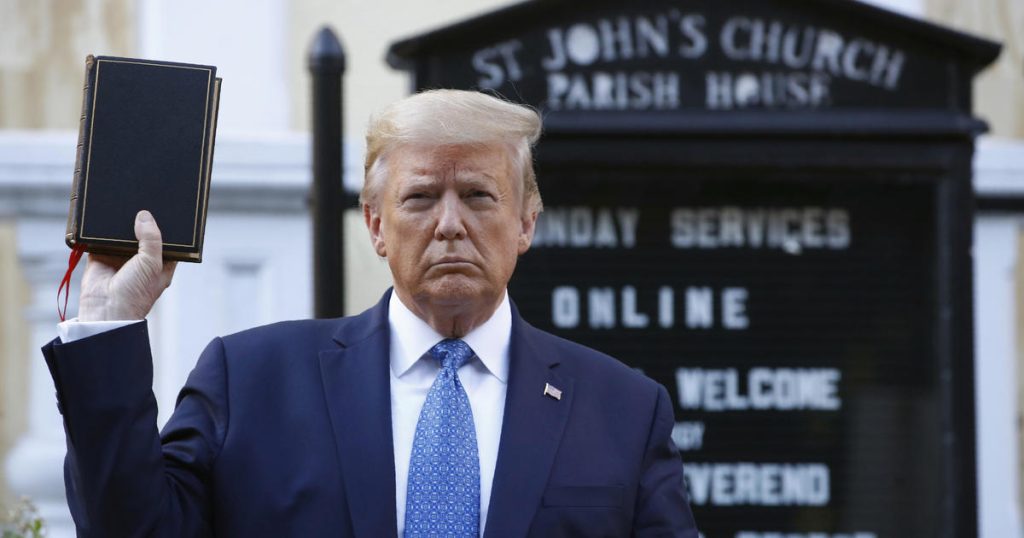The Associated Press recently discovered that thousands of “God Bless the USA” Bibles, associated with former President Donald Trump, were printed in China despite Trump’s frequent rhetoric against the country’s trade practices. These Bibles were sold for $59.99 each, with a printing company in Hangzhou shipping close to 120,000 Bibles to the United States between February and March. Trump, who owns a company in partnership with country singer Lee Greenwood for the branded Bible, has earned around $300,000 in royalties from the deal so far.
While Trump has been campaigning for reelection with a platform that includes implementing tariffs to discourage Americans from buying imports, the connection between his Bible and China presents a stark contrast. The potential sales revenue for the Bibles could be around $7 million, making it a profitable venture for Trump. The 60% tariff that Trump proposed on Chinese imports would significantly increase the price of these Bibles, highlighting the irony of the situation.
Trump released a video on his Truth Social platform announcing his partnership with Greenwood to sell the Bibles, which include copies of the U.S. Constitution, Declaration of Independence, and other historical documents. The video blended religion with his campaign message, emphasizing the importance of Judeo-Christian values in America. Despite the controversy around the origin and quality of these Bibles, Trump’s licensing deals have generated considerable revenue.
Apart from Bibles, Trump has been involved in various for-profit ventures, such as selling watches, sneakers, photo books, and NFTs. These enterprises have raised concerns about potential conflicts of interest, especially when it comes to selling products at prices that exceed their value. Trump’s advocacy for tariffs on Chinese imports while profiting from products printed in China raises ethical questions and highlights the complexities of his business dealings.
The interaction between religion, state, and commerce in Trump’s Bible sales has also raised ethical concerns, with critics pointing out the problematic mixing of religious beliefs and political agendas. As the former president, Trump had the power to influence policies that could benefit his businesses, raising questions about potential conflicts of interest. Despite these controversies, there seems to be a potential market for Trump’s Bibles in states like Oklahoma, where there is a push to incorporate Scripture into school lessons.
The source of the Bibles, a printing company in Hangzhou, China, has been identified, along with the importer in the United States. This revelation sheds light on the global supply chain involved in producing these Bibles and the potential profits associated with the venture. The quality of the Bibles has also been criticized, with issues like cheap materials and poor printing evident. Overall, the story of Trump’s China-printed Bibles highlights the complex nature of politics, trade, and personal gain in the modern world.


